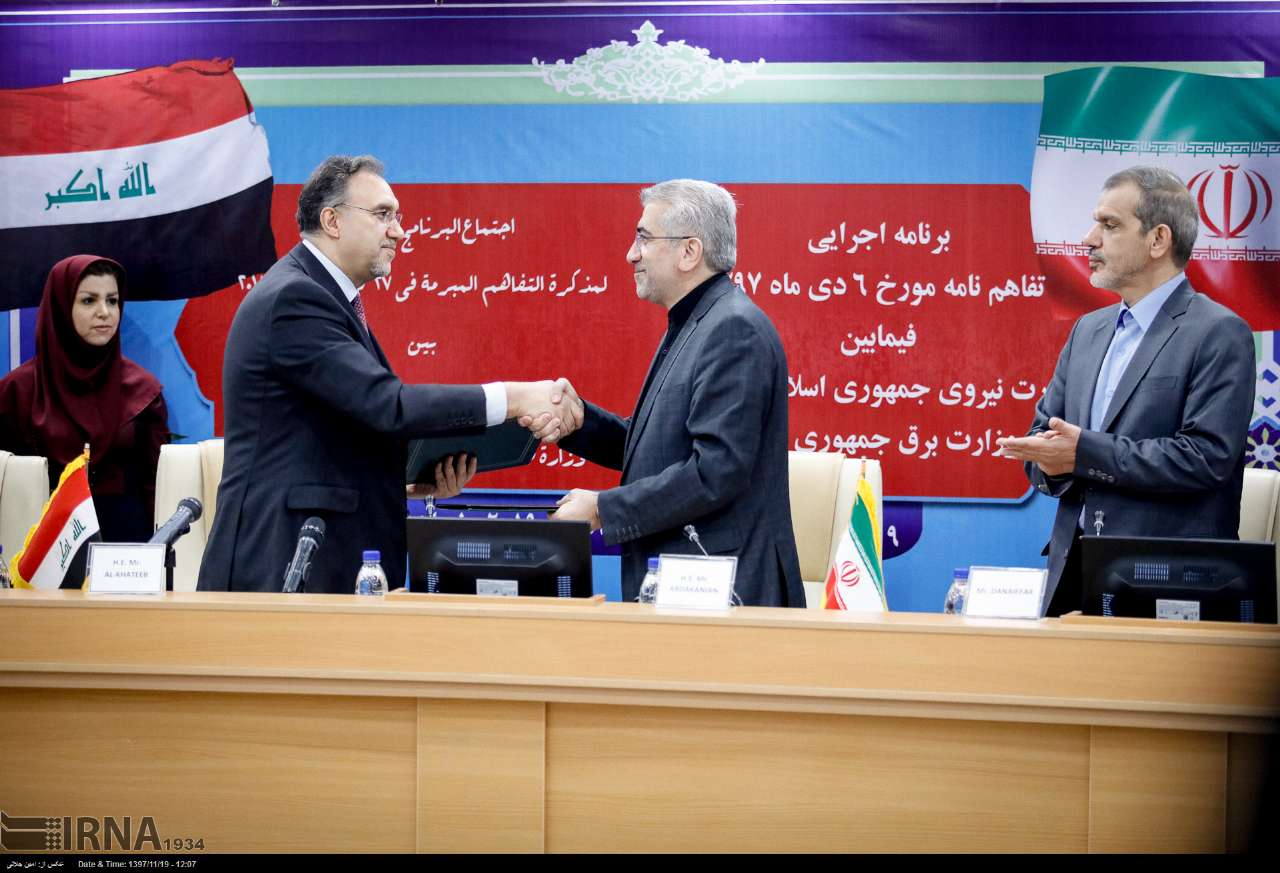The Iraqi electricity minister says Baghdad has no alternative for the Iranian energy, setting a positive tone that his country will obtain more US exemptions in the future.
“I believe they [sanctions waivers] will continue because Iraq’s situation is different from that of our countries, and we do not have an alternative,” Iraqi Electricity Minister Luay al-Khatteeb was cited as saying by Al-Monitor news portal.
“They [The Americans] know and understand our gas needs. Neither the international community nor the United States would benefit from putting spokes in the wheels for Iraq,” warned the Iraqi minister as the summer is just on the doorstep.
Violent protest broke out last summer in the Iraqi city of Basrah last year due to blackouts that were caused by the US sanctions on Iran.
Although Baghdad has increased power production up to 3,500 megawatts last month, the country says it still is in dire need of direct imports of electricity and gas from Iran to meet the rising internal demand as the country is looking to reconstruct itself after years of war.
“Our need to import electricity temporarily from Iran might not exceed six months or a bit more, but our need for gas will last for about two to three years until the situation of Iraqi gas improves,” cautioned the Iraqi minister.
In 2017, Iraq signed a deal with Iran to import up to one billion cubic feet of natural gas daily, which would cost $2.8 billion annually at crude oil prices of $70 per barrel. The actual imports have been half that amount. The fuel accounts for 10 to 15 percent of Iraq’s electricity generation. Even with that, Iraq has a shortfall of three gigawatts of power, according to the New York Times.
“We told neighboring countries that we are open to electricity and gas deals. Some offers were put forward, but they were nowhere near the Iranian gas,” said the Iraqi minister in an interview with al-Monitor.
Iran has been exporting more than 1,000 megawatts of electricity to its Arab neighbour. Tehran and Baghdad renewed the deal early February this year during a meeting between Iranian Energy Minister Reza Ardakanian and Iraqi Electricity Minister Luay al-Khatteeb. The power is exported through three transmission lines in Basra, Diyala and Amara that connect Iraqi grid to the Iranian power lines.

Iraqi Electricity Minister, Luay al-Khatteeb (left) shakes hands with Iranian Energy Minister Reza Ardakanian following renewing Iran-Iraq power agreement in Tehran. IRNA, Amin Jalali
“We currently import 1,100 megawatts of electricity from Iran, and we import gas for producing 2,800 megawatts of electricity. The whole amount reaches up to 4,000 megawatts. We have not found better offers in terms of quantity, speed and price. Besides, we would need infrastructure to connect us to other countries. Our only option currently is Iran,” added al-Khatteeb.
Iran is also working on plans to rebuild the damaged Iraqi electricity grids for the next three years. Other regional countries such as Saudi Arabia, Persian Gulf states as well as the Americans and Europeans have also set sights on the lucrative Iraqi reconstruction market.
According to the al-Khatteeb, Baghdad and Riyadh have signed an agreement about Saudi companies investing in the energy sector in Iraq. “In the next phase, [Persian] Gulf companies will invest in the Iraqi energy sector, [too], mentioned the Iraqi official.
Al-Khatteeb also stressed that there is no problem for paying the Iranian companies that are working in Iraq in the wake of US sanctions. “Everything is working normally. Those companies are limited in number; we pay them in Iraqi dinars with simple contracting operations,” he mentioned.